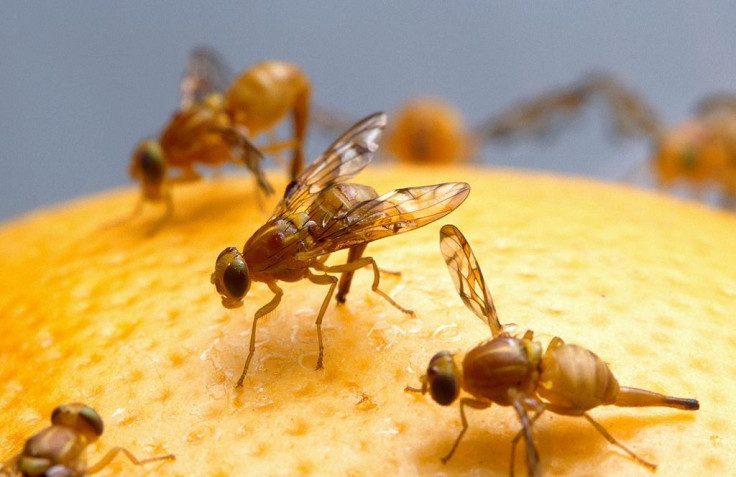Ever Felt 'Hangry'? Even Fruit Flies Get Aggressive When Hungry
KEY POINTS
- Researchers tested the behavior of male fruit flies when they are food-deprived
- The hungrier fruit flies were "more hostile" toward each other
- The researchers found that hunger provoked "hangry" behavior in the flies
It seems humans aren't the only ones who can get "hangry." A team of researchers has found that even fruit flies show aggressive behavior when they are very hungry.
The term "hangry" is a combination of the words "hungry" and "angry," and it's used to describe the irritability and aggression that some people experience when they are famished. In a new study, published in the journal Animal Behavior, researchers found that even male fruit flies can also experience it, making them more likely to fight.
The team looked at how food deprivation would affect male fruit flies' behavior and interaction with other male fruit flies, a news release from the University of East Anglia (UEA) said. The researchers randomly assigned the male flies into groups; the files in the first group were fed throughout the experiment while the others were fed only after a gap of 24, 48 or 72 hours respectively.
Pairs of flies were then placed together in vials with a food source. Observers watched the fruit flies' behavior, which included the number of tussles, lunges and even fencing behavior. They found that the creatures displayed aggression after prolonged periods of food deprivation.
"We found that hungry male fruit flies display more hostility toward each other. They're more likely to aggressively lunge at each other and to swat at each other with their legs (fencing' behavior), and they spend more time defending food patches," senior author Jen Perry, of UEA's School of Biological Sciences, said. "The hungrier they get, the more combativeness they display. In other words, just like humans, fruit flies get 'hangry.'"
The fruit flies' aggression peaked at 24 hours but plateaued thereafter, the UEA news release explained. According to the researchers, the aggression might be from a "desperado" effect, in which they would choose to fight even if they're "likely to lose" rather than not fight at all.
"On the one hand, going hungry might lead to a weakened state, such that hungry individuals are less likely to win fights and so they display aggression less often," Perry said. "On the other, hungry individuals might be more motivated to fight to compete for food, leading to displays of aggression or 'hanger.'"
"Our findings that adult food deprivation increases aggression and food patch occupancy in male D. melanogaster demonstrate that behavioral strategies critically depend on their nutritional experience, even in adult insects with low food requirements," the researchers wrote.
"The observed behavioral responses reflect patterns of increased aggression associated with starvation in a wider range of organisms," they added.

© Copyright IBTimes 2024. All rights reserved.






















